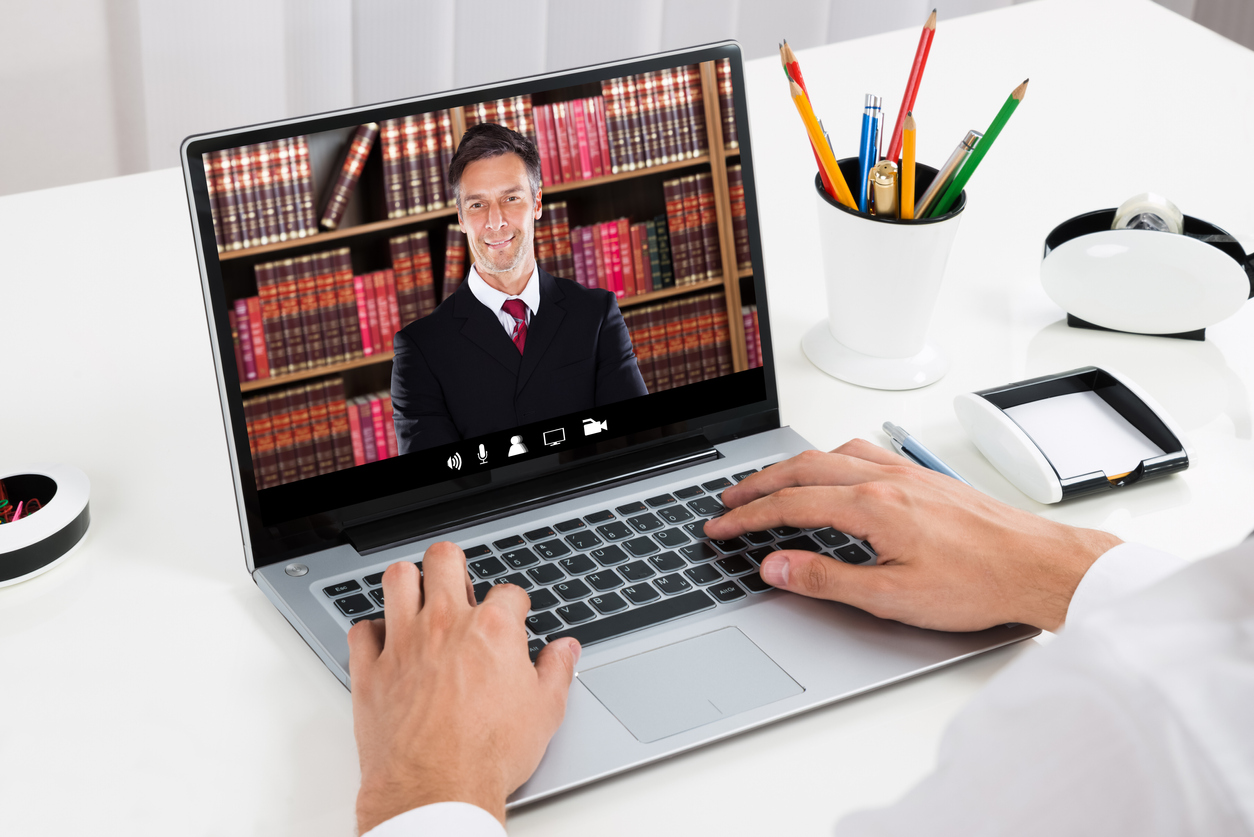Zoom is booming. Covid19 has pushed attorneys out of their offices and into their homes to work remotely. As a result, video conferencing has taken on a greater role in the workplace. Attorneys need to be able to interview clients, attend hearings, and conduct depositions as a matter of routine.
Video conferencing platforms such as Zoom, GoToMeeting, and Microsoft Teams, have made that possible in a pandemic world. Although many law firms had been using video conferencing tools before the pandemic, their use has escalated. But these platforms are not without concerns for an attorney and for their clients.
Understanding these concerns is a starting point toward solving problems before they manifest. Many of these issues stem from an attorney’s ethical duties to their clients. The Model Rules of Professional Responsibility have been adopted in most jurisdictions in the United States, including California. These Model Rules, as adopted, govern an attorney’s ethical duties. Three Model Rules are relevant to the ethical concerns raised by such platforms as Zoom.
Attorneys Must Be Competent
Model Rule 1.1 states that an attorney must provide competent representation to the client. This requires that an attorney have or gain the legal knowledge, skill, thoroughness, and preparation necessary for that representation. Much of the issue of competence lies in an attorney’s skill in providing legal analysis. Comments by the American Bar Association and State Bar of California make it clear that competence includes keeping abreast of relevant technology.
According to Brian White, a lawyer and founder of Attorney Brian White & Associates, PC, “An attorney must understand how technological changes affect issues such as confidentiality and protecting work product. All video conferencing platforms have some security involved. Zoom is the most studied platform on security. However, it is important to understand a platform’s security tools and any deficits in those tools.”
Using Zoom as an example, maintaining security of the meeting link and password are critical to ensuring that only those who should be attending the meeting, are. That may mean using a new meeting link for each meeting or sending a password separately from the link itself.
There are other issues regarding security and encrypted sources for the sharing of documents. Again, using Zoom as an example, it is possible to share the screen during a client meeting. Attorneys must be careful that in doing so, they do not disclose other client information. Sharing screens can and should be regulated by the meeting host and documents should only be shared via encrypted means.
Attorneys Must Protect a Client’s Confidentiality
Model Rule 1.6 requires that an attorney protect a client’s confidentiality. This includes various aspects from the representation itself to client disclosures to work product and other client documents. Confidentiality is the bedrock of the attorney-client relationship.
The above security discussion is relevant to the issue of confidentiality. It is important that extra precautions be taken for sensitive meetings. An attorney may want to consider locking the meeting after everyone has joined.
Recording a session can mean that an attorney considers the issue of storage of the recorded session. For example, Zoom allows the meeting host to store the recording on the attorney’s computer, or it can be stored on Zoom’s cloud. The location of the cloud server may be an issue for sensitive material. For sensitive communications, an attorney should consider whether the platform allows end to end encryption or not. This can be an important component in determining which video conferencing tool to use for what kind of meeting.
An Attorney Must Keep the Client Up to Date
In both the Model Rules and in the California Rules of Professional Responsibility, the attorney must keep the client reasonably informed about the status of a matter and follow reasonable requests for information. (Rule 1.4) This imperative requires that despite the pandemic, that an attorney keeps their client advised of the status of the legal matter. During representation, some matters are more sensitive than others, but all client communications are subject to confidentiality concerns.
Picking the medium most suited to the level of security needed is critical to keeping the client informed and protecting confidential information. This duty extends to any other staff conducting the meeting on behalf of the attorney.
Finally, a word of caution for the attorney working at home. It is important that an attorney work in a dedicated area free from traffic from other family members. While a dog entering the camera shot may be cute, a spouse entering the same camera shot is a violation of the client’s confidentiality.
Concluding Thoughts
Attorneys must fully investigate and use tools available to protect client communications. This may mean spending time learning about security tools available and making appropriate choices depending on the level of sensitivity involved. For sensitive matters, an attorney may want to choose a video conferencing tool with end to end encryption.
Technology is ever-evolving. It is important to stay abreast of the technological tools that are available at present and other tools as they become available. This will help attorneys do their job and help clients feel secure.

